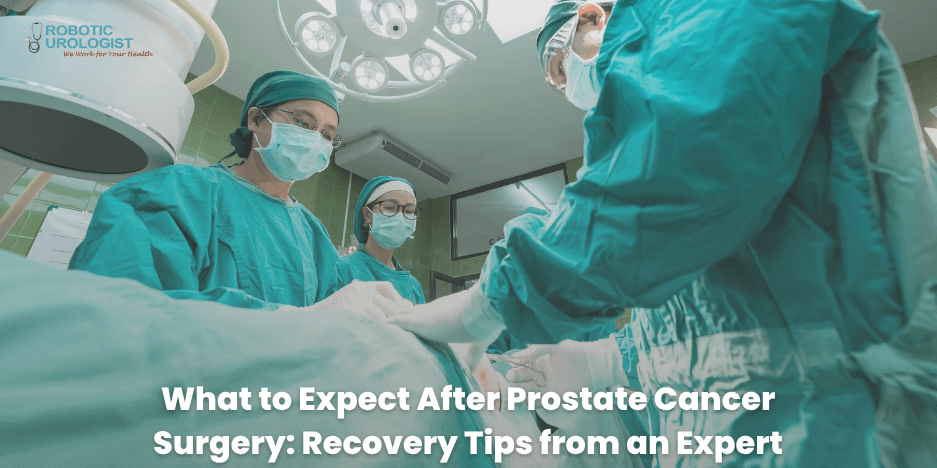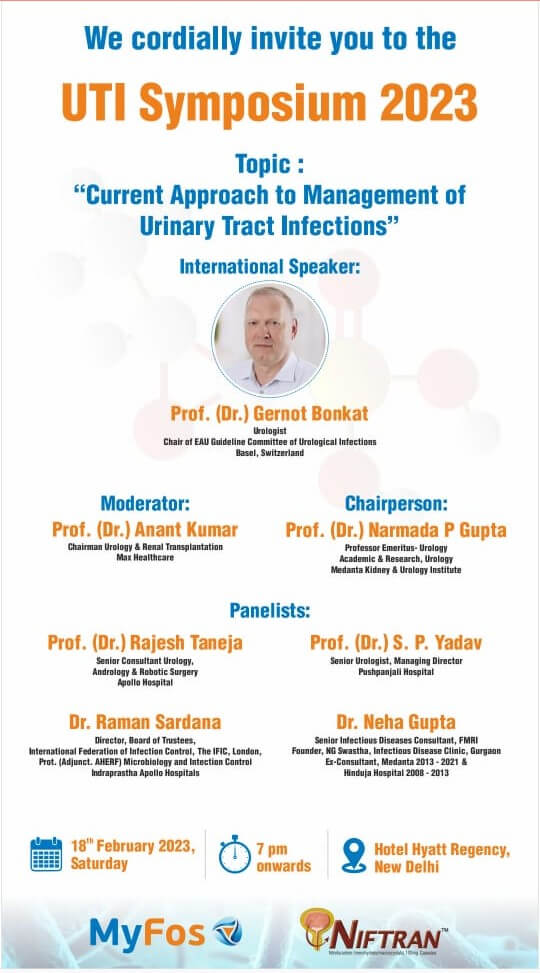Prostatectomy is the major surgical procedure to treat prostate cancer. Whether a person undergoes a radical prostatectomy or a minimally invasive surgical procedure, the journey of recovery and healing is not easy.
After this life-saving surgery, the recovery doesn’t happen overnight. Knowing what to expect after the surgery and understanding the recovery process can help manage post-surgical anxiety and speed up the recovery.
As an experienced prostate cancer surgeon in Delhi, Dr Rajesh Taneja sheds light on key aspects of recovery in the post-surgical phase and the necessary steps to follow in this crucial time.
How long does the recovery after prostate cancer surgery take?
The recovery time for prostate cancer surgery varies based on multiple factors, including the type of surgery, the patient’s health condition and age.
With the advancement of medical science, robotic prostatectomy is the most common surgical procedure to treat prostate cancer. In this procedure, the patients stay in the hospital for 1-2 days, whereas the entire recovery time may take 6 to 8 weeks.
Recovery from some long-term side effects may take a few months to 2 years or more.
However, the expertise of an experienced cancer doctor in Delhi can help manage potential side effects and accelerate the recovery time for various prostate cancer treatment procedures.
Immediate Recovery after Prostate Cancer Surgery
In most cases of radical prostatectomy, patients typically stay in the hospital for 1-2 days. Based on the surgical difficulties and overall health of the patients, the surgeon recommends immediate post-operative steps –
A urinary catheter: Just after the patient wakes up after the surgery, a urinary catheter is inserted through the urethra into the bladder to drain urine. The tube will stay for 1 to 2 weeks.
Intravenous (IV) drip: The person needs an intravenous (IV) drip to deliver fluid in the body for a few days after the surgery.
Pain management: During the first stage of recovery, the doctor provides some pain relievers to manage the post-surgical pain.
Restricted mobility: The doctor also recommends limited movement and walking as soon as possible to promote healing.
Short-Term Recovery after Prostate Cancer Surgery
During the first 4 to 6 weeks of the prostatectomy recovery, the person may feel some pain and tiredness. According to our prostate cancer doctor in Delhi, the person can gradually resume their typical activities after taking care of the following aspects –
Catheter removal: Within 1 to 2 weeks after the surgery, the catheter is removed as per the doctor’s recommendation. People undergone robotic prostatectomy need to use a catheter shorter than those who have open prostatectomy.
Wound care: For robotic prostate cancer surgery, people may have smaller incisions than an open prostatectomy. A healthcare professional changes the dressings and cleans the wound after an interval. After some time, they instruct the person to do the needful at home.
Managing side effects: As short-term side effects, a person may experience incontinence and erectile dysfunction within the first few weeks after surgery. With time, the intensity of these side effects reduces.
Checking for cancer recurrence: An expert prostate cancer surgeon in Delhi performs prostate-specific antigen (PSA) tests and some relevant tests to examine any signs of cancer recurrence.
Why Robotic Urology Is the Best Option for Prostate Surgery
Long-term Recovery from Prostate Cancer Surgery
While most people return to their normal activities within a few weeks after the surgery, a few people may experience some long-term side effects beyond 6 to 8 weeks after the surgery.
Urinary incontinence: A 2023 study showed that more than 26% of people who underwent a radical prostatectomy experienced difficulty in urination. When the problem lasts for a few months, the doctor may suggest treatments such as bladder training, Kegel exercises, using a catheter and even surgery.
Erectile dysfunction: It has been observed that more than 61% of people experience erectile dysfunction issues after their prostate cancer surgery. The side effects may continue for up to 2 years or more. Possible treatment options for erectile dysfunction are medications like phosphodiesterase-5 (PDE5) inhibitors, penile implants and vacuum devices.
Cancer recurrence: Dr Rajesh Taneja, the prominent Robotic prostate cancer surgeon in Delhi, suggests that his patients have follow-up visits every 3 months for the first year and every 6 months afterwards. During these visits, the doctors may conduct regular PSA tests to check for any possibility of cancer recurrence.
Final Thought
Every patient’s recovery journey after prostate cancer surgery is unique. Make sure the recovery process encompasses physical healing, mental well-being and overall health management. If you need any consultation from an expert prostate cancer surgeon in Delhi, don’t hesitate to reach out to Dr. Rajesh Taneja, one of the pioneer urologists, who trained in robotic surgery.
FAQs:
How to speed up recovery after prostate cancer surgery?
Whereas the recovery depends on several factors such as the type of surgery procedure, the person’s age and overall health condition, the following tips can help the person speed up the process –
- Taking prescribed medications as directed
- Having regular follow-ups
- Following medical advice for sexual activity
- Performing bladder training and Kegel exercises 3 days after removing the catheter
Is urinary incontinence permanent after prostate cancer surgery?
While urinary incontinence is a common side effect of prostate cancer surgery, in most cases, it is temporary, lasting for 6 to 8 weeks. Many men regain bladder control after 6 to 8 weeks with the help of some exercises and rehabilitation.
Does prostate cancer surgery impact sexual activity?
After prostate surgery, experiencing erectile dysfunction is common due to potential nerve damage. While in the first few months, sexual activity may be impacted because of erectile dysfunction, recovery is possible with medications, therapy and devices.




